Companies are looking for ways to improve their Human Capital Management (HCM) in today’s changing business environment.
In today’s rapidly evolving business landscape, organizations are increasingly seeking ways to optimize their Human Capital Management (HCM) and HR practices. As workforce expectations shift, regulatory requirements grow more complex, and technology continues to advance at breakneck speed, the need for managed services in the HCM space has never been more apparent. Companies that leverage managed services not only streamline their operations but also gain the flexibility and expertise necessary to remain competitive in a challenging environment.
The Complexities of Modern HCM
Managing human capital has grown into a multifaceted challenge. From payroll compliance and benefits administration to employee engagement and workforce analytics, the demands placed on HR departments are vast. Smaller companies often lack the internal resources to effectively manage these responsibilities, while larger enterprises face scalability issues as their workforce grows.
Adding to the complexity is the ever-changing regulatory environment. Compliance with labor laws, tax regulations, and data privacy standards has become a daunting task for HR teams. Non-compliance can result in steep penalties, reputational damage, and loss of employee trust. Managed services providers (MSPs) specializing in HCM bring a wealth of knowledge and experience to the table, ensuring organizations stay ahead of compliance challenges.
Technology as a Driving Force
Technology has revolutionized HCM, introducing tools like applicant tracking systems, payroll platforms, and workforce management software. While these advancements have created opportunities for increased efficiency, they also present challenges. Implementing, integrating, and maintaining multiple systems can be overwhelming, particularly for organizations without dedicated IT or HR tech teams.
Managed services offer a solution by bridging the gap between technology and HR operations. MSPs provide expert guidance on selecting and implementing HCM technology, ensuring seamless integration and optimal performance. They also manage ongoing updates, troubleshooting, and system optimization, freeing up internal teams to focus on strategic initiatives.
Scalability and Flexibility
As organizations grow or experience shifts in workforce dynamics, their HCM needs evolve. Managed services provide the scalability required to adapt to these changes. Whether it’s expanding into new markets, managing seasonal hiring spikes, or navigating a merger or acquisition, MSPs can scale their services to meet an organization’s unique requirements.
Additionally, managed services offer flexibility in service delivery. Companies can choose the level of support they need, from fully outsourcing payroll and benefits administration to augmenting their existing HR team with specialized expertise. This customizable approach ensures that businesses receive tailored solutions that align with their goals and budgets.
Enhanced Employee Experience
In today’s competitive job market, the employee experience has become a key differentiator. Managed services help organizations enhance this experience by streamlining processes, improving accuracy, and delivering faster responses to employee inquiries. For example, an MSP can ensure that payroll is processed on time and error-free, or that employees have access to comprehensive benefits and self-service tools.
By improving these foundational aspects of HR, organizations can focus on higher-value initiatives, such as developing a strong company culture, fostering employee engagement, and building leadership pipelines. Employees, in turn, feel more supported and valued, contributing to improved retention and productivity.
Cost Efficiency and Strategic Focus
Managed services not only reduce the administrative burden on HR teams but also deliver significant cost savings. By outsourcing routine tasks and leveraging the expertise of MSPs, organizations can lower operational costs, reduce errors, and avoid costly compliance violations. Moreover, the predictable pricing models of managed services make budgeting more manageable.
With administrative tasks handled externally, HR teams can redirect their focus toward strategic priorities such as talent acquisition, workforce planning, and leadership development. This shift allows HR leaders to play a more impactful role in driving business success.
Conclusion
The growing need for managed services in the HCM space is a direct response to the increasing complexity and demands of modern workforce management. By partnering with managed services providers, organizations can navigate challenges, enhance their employee experience, and focus on strategic growth. As businesses continue to adapt to an ever-changing landscape, managed services will remain a vital component of effective and efficient HCM practices.







